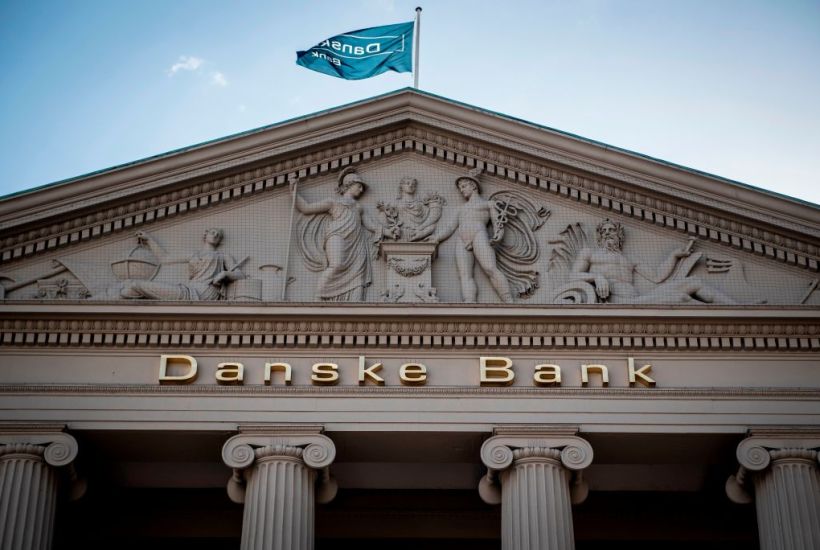Asked why he robbed banks for a living, the legendary American bank robber Willie Sutton allegedly replied, ‘because that’s where the money is’. Not any more, it isn’t.
In Denmark, where only twenty of the country’s 740 bank branches still hold cash in their vaults, 2022 was the first year without a bank robbery. There had been 222 as recently as 2002. Sutton, who said he robbed banks because ‘I was more alive when I was inside a bank, robbing it, than at any other time in my life’, would weep.
Why have Danish bank robbers hung up their swag bags? The reason is Denmark’s rapid transition towards a cashless society, expedited by the pandemic. In the four years to 2021, the proportion of cash used for purchases nearly halved, from 23 percent to 12 percent. Only Sweden and Norway use less cash than Denmark.
My fellow Danes’ abandonment of cash is passing me by, though – I still need scads of the stuff. That’s because one of the key methods of electronic cash transfer in Denmark is a massively popular app called MobilePay, which is on every young Dane’s mobile phone but doesn’t work with foreign numbers.
There is reason to suspect that the dwindling number of Danes who still use cash may have the wisdom of their age
Life without MobilePay is limited: in the highly trusting countryside surrounding our summer house, one can acquire a week’s provisions without ever meeting a retailer. Everything from fruit and vegetables to bread, eggs and honey can be bought from roadside honesty boxes. Our nearest greengrocer is a single farmer who leaves his well-stocked farm shop unattended. But the means of payment at honesty boxes are MobilePay for resident Danes, and ancient, rusting cash boxes for the rest – plastic is not accepted.
Fortunately, there are still plenty of ATMs in Denmark. And if one happens to have cash, it can still be used nearly everywhere. Unlike the UK, where retailers are entitled to refuse cash payments, staffed retail stores in Denmark are obliged to accept cash. There are but few exceptions: cash payments of over circa £2,400 are illegal, and retailers don’t have to accept mountains of small change (payments of over twenty five coins in any one denomination can be rejected).
Some retired Danish bank robbers may be turning to online fraud instead – one in eleven Danes aged between 65 and 74 who have been subject to false emails or fraudulent websites claim they have lost money as a result. But, having suffered a series of disastrous cyberattacks, including the 2017 ransomware attack on Maersk, the world’s largest container shipping company, deemed by some ‘the most devasting cyberattack in history’, Denmark invested heavily in cyber-security, and is now ranked as the most cyber-secure country in the world.
All the same, there is reason to suspect that the dwindling number of Danes who still use cash (these days, mostly pensioners) may have the wisdom of their age. Firstly, there is plenty of evidence that consumers hold on to their money more tightly if it is cash than if it is in electronic form.
Also, while Denmark enjoys excellent cybersecurity, Copenhagen is geographically closer to the Russian enclave of Kaliningrad than it is to London. Physical resilience might become an issue.
In 2022, the Danish island of Bornholm suffered a power outage after an underwater cable from Sweden was mysteriously severed. A desperate Russia might target the world’s subsea internet infrastructure, including in the Baltic. The world’s near-cashless societies (mostly the Nordic countries) rely on internet connectivity and electricity generation, neither of which have yet been tested in the kind of extreme scenarios which, sadly, are less a matter of science fiction in 2023 than they were in 2021.
Let’s hope such negative scenarios never come to pass. But if they do, Danes will regret putting bank robbers out of business.
Got something to add? Join the discussion and comment below.
Get 10 issues for just $10
Subscribe to The Spectator Australia today for the next 10 magazine issues, plus full online access, for just $10.



















Comments
Don't miss out
Join the conversation with other Spectator Australia readers. Subscribe to leave a comment.
SUBSCRIBEAlready a subscriber? Log in